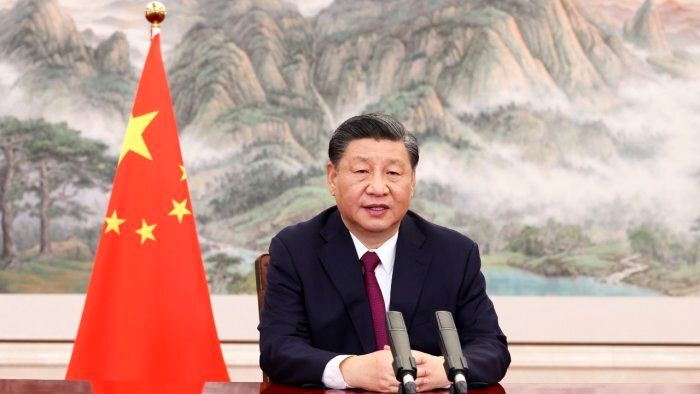The ongoing rivalry between the United States and China has recently engulfed all strategic discussions, including political, military, and economic. From China’s point of view, the United States will never voluntarily cede significant international influence to China. One of the issues that seem to be converging inside China is the expectation that from Trump to Biden, the US strategic orientation towards China will continue unchanged. Even though Chinese experts acknowledge that Biden’s administration takes a more subtle tone and a softer approach to dealing with problems, they expect the United States and the West to deal a blow on China in various ways, such as using human rights leverage to interfere in China’s internal affairs, tightening sanctions and bringing the sovereignty of the country in Hong Kong and Taiwan, and the root causes of the hostility of the United States with China will remain unchanged. Therefore, Beijing seems to be preparing for a long-term struggle with the declining but still powerful and dangerous United States, which is formed with an aim of resisting the strategy of the West and the United States. The United States also sees China as a revisionist actor whose long-term objective is global supremacy. This is a consensus in the United States between the two main parties as a principle.
Economic competition and tensions over trade, economic and fiscal policies will shape the real dimensions of competition, given China’s future chairmanship of BRICS and its strategic role in the global economy. Also, the technological dimension of the competition will deepen, which is also related to geopolitical questions in its traditional sense, in fact, the same areas of political influence will this time become areas of technical influence on digital products and services. In this regard, issues related to the development and use of technologies are increasingly linked to political and ideological aspects, and they become part of a systemic opposition or competition: for example, the type of relationship between government and society or global competition between liberal and democratic paradigms on the one hand, and the authoritarian on the other hand.
China’s future chairmanship of BRICS will be crucial in building a strong international front to enhance the level and scope of strategic cooperation in the political, economic, and security dimensions in line with China’s goals and for expanding its influence, which could ultimately weaken the unipolar world under the domination of the United States in the West and become the basis for unilateralism, which will also play an effective role in balancing multilateral interactions and the global will to establish equal relations based on peace and development among countries. Security, cultural, technological, and counter-terrorism cooperation in the Chinese-led BRICS will complement economic interactions.
It is not easy to distinguish between Beijing’s medium- and long-term strategic goals, which have become one of the hottest topics in the Western discourse on China, and the many analysis at the academic level. However, it is clear that Beijing is moving in a direction that will lead to the flourishing of strategic cooperation in the East, reconstruction of China as a central player in Asia, and leading power in the world arena, a country with greater ability in shaping rules and norms and international institutions in line with their preferences. Leaders of China, as the world’s second-largest economy, while the United States continues to operate unilaterally, believe that its foreign policy and foreign relations should support its national goals, especially its sustainable development. Therefore, Beijing, by mastering the problems of the world, tries to overcome short-term obstacles in order to achieve its long-term goals.
Extensive cooperation in the Chinese-led BRICS is not limited to economic matters, as it paves the way for increasing China’s influence and, on the one hand, in the context of regional and international developments, will change the balance of the strategic interests of independent states with concerns, opportunities, and common threats, on order to be an effective axis for political, security and economic cooperation of regional countries.
Overall, the pattern of cooperation in the Chinese-led BRICS can be a symbol of international cooperation based on respect and independent political will, which can provide an effective synergy in building bilateral and multilateral cooperation capacities among developing countries and regional powers. At the same time, China’s leadership over a number of emerging economies members in BRICS could strengthen various aspects of China’s economy and, as a result, strengthen its ability to compete economically with the United States.










0 Comments